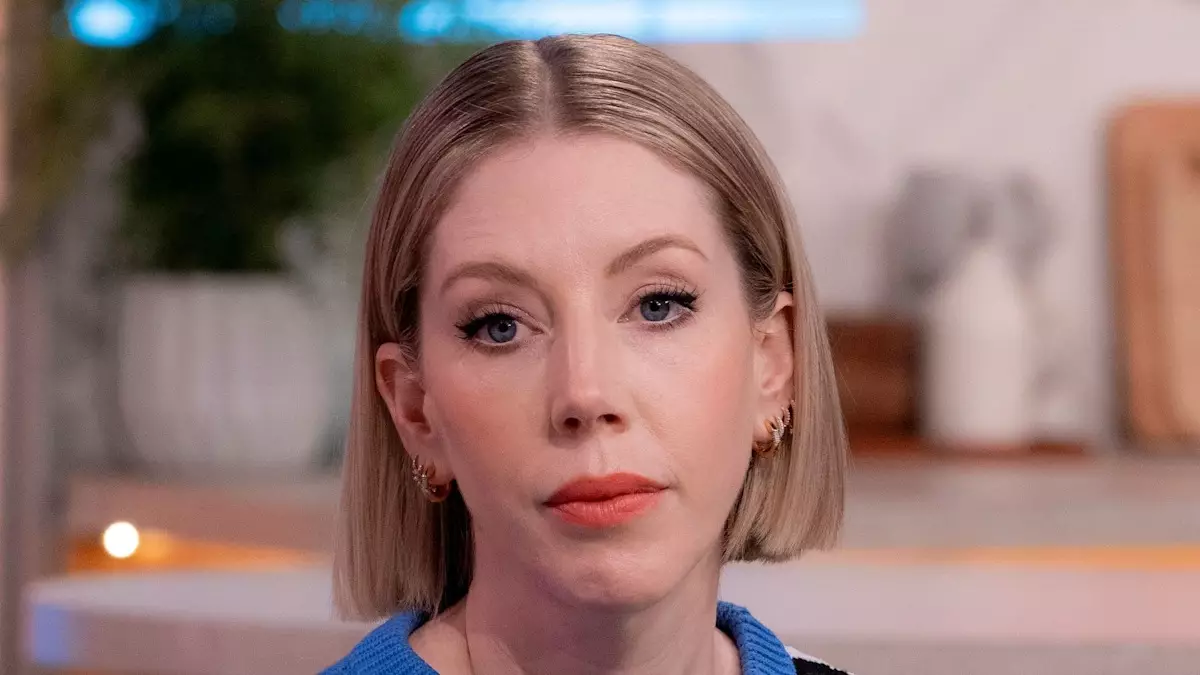Katherine Ryan, the charismatic comedian and mother of three, has recently revealed an unsettling personal battle: a second diagnosis of melanoma, a type of skin cancer known for its aggressiveness. The journey to this startling revelation began with a seemingly innocuous mole on her arm, which Ryan, despite initial reassurances from medical professionals, instinctively felt warranted further scrutiny. Her experience highlights a critical issue in healthcare—patient advocacy—and the importance of trusting one’s instincts when it comes to health concerns.
During her candid appearance on the “Telling Everybody Everything” podcast, Ryan shared that both the National Health Service (NHS) and a private clinic dismissed her growing concerns about the mole. This situation underscores a troubling trend within health systems, where patients may feel pressure to conform to a one-size-fits-all diagnosis even when their intuition suggests otherwise. Ryan’s experience is a poignant reminder that even well-intentioned healthcare professionals can overlook signs that warrant deeper investigation; it creates a scenario where urgency falls to those who lack access or resources.
The Importance of Self-Advocacy
Katherine’s proactive stance serves as an admirable testament to self-advocacy, an essential component of navigating the healthcare system. Upon feeling that her concerns were being minimized, she sought a second opinion from a private clinic. However, she faced resistance even there, as the initial consultations left her feeling unheard. The turning point in her journey is a powerful illustration of how persistence can pay off. Ryan’s decisiveness to insist on a more thorough examination, despite being told otherwise, is a crucial lesson for all. It questions why patients often have to fight for their health in the first place.
“Just do the deeper cut now,” she recalls urging her doctor, pushing him toward a more aggressive approach to her treatment. Her sense of urgency is palpable, reminding us that healthcare is not merely a series of consultations but a deeply personal endeavor that can often feel like a battle of wills between a patient and their provider. This anecdote not only emphasizes the necessity for diligent personal health management but also highlights the power dynamic that exists in many doctor-patient relationships.
American vs. UK Healthcare: A Personal Perspective
Interestingly, Katherine’s experience raises broader conversations about public versus private healthcare systems, particularly in the UK. After spending £1,000 to have the mole removed at a private practice, Ryan contrasted this with her earlier experiences within the NHS system where she felt she might not have received the same level of attention or care. This begs the question: is there an inherent inequality in the way healthcare is delivered based on a patient’s ability to pay?
Her story compels a critical examination of a system where financial means can dramatically alter the course of healthcare. While the NHS is designed to provide care for all, Ryan’s concerns mirror sentiments shared by many who feel that financial disparities can result in better outcomes for those who can afford private care. It draws attention to an uncomfortable reality: that, all too often, access to timely and appropriate medical interventions can hinge on one’s economic situation rather than clinical need.
An Open Dialogue About Mental Health
As Ryan navigates her cancer journey, she has also been vocal about its psychological toll. The emotional burden that accompanies a cancer diagnosis—particularly in the public eye—cannot be overlooked. After her diagnosis, she utilized social media to communicate openly with fans, addressing speculation about her comments regarding the NHS. This transparency is crucial, as it provides a face to the statistics and opens the door for conversations about mental health and emotional well-being while dealing with a harrowing illness.
Her willingness to share her fears and experiences can serve as a beacon of hope for those undergoing similar struggles. Moreover, it emphasizes the significance of emotional support systems, both personal and professional. A cancer diagnosis is not merely a medical event; it’s an all-encompassing experience that affects every aspect of a person’s life, including their mental health. Ryan’s approach invites candid discussion about what it means to feel vulnerable and how societal perceptions of health can impact one’s journey toward healing.
Raising Awareness
In light of her diagnosis, Ryan has taken on the role of advocate, encouraging her followers to monitor their skin health proactively. Her message is clear: awareness is key. Through her platform, she stresses the importance of regular skin checks and being vigilant about changes in moles, effectively transforming her personal crisis into a vital public health campaign. This shift from patient to advocate not only empowers her but also resonates with her audience, urging them to take charge of their health.
Katherine Ryan’s journey is more than just a tale of a celebrity dealing with cancer; it’s a reflection of resilience, advocacy, and the intricate relationship between personal experience and systemic healthcare. Her story is a blueprint for navigating the complexities of medical diagnosis and treatment, encouraging others to remain steadfast in their pursuit of health and understanding.

